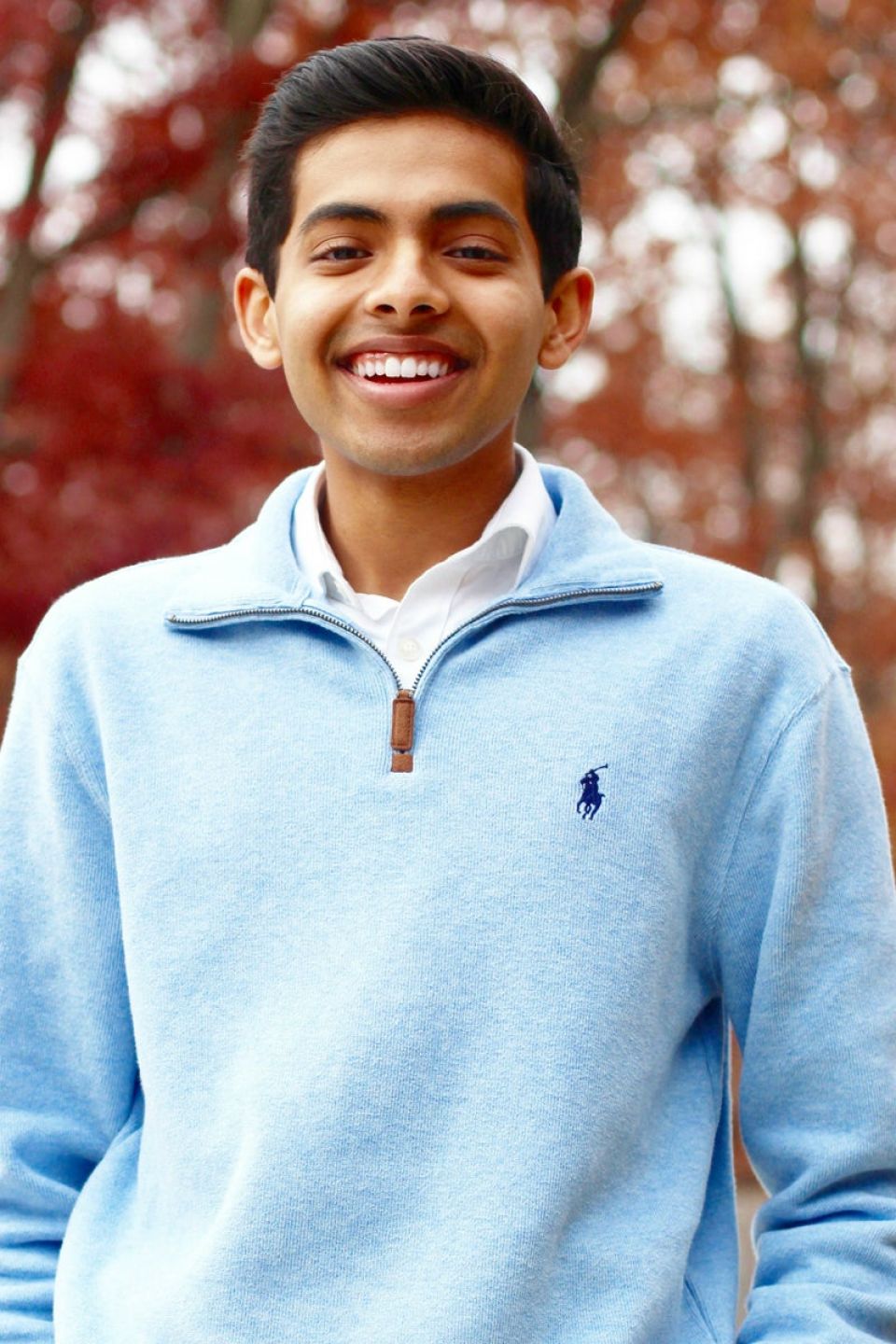Stanford freshman Prathik Naidu is one of three U.S. student representatives who are traveling to Stockholm to present their original research at the Nobel Prize Award Ceremony this Sunday. Naidu earned this honor through his award-winning entry in the Intel International Science and Engineering Fair 2017.

Stanford freshman Prathik Naidu will present his scientific work at the Nobel ceremony in Stockholm. (Image credit: Courtesy Thomas Jefferson High School for Science and Technology)
Naidu’s research involves machine learning algorithms to identify three-dimensional interactions between segments of DNA in cancer cells – a process that Naidu said is challenging through lab-based methods.
“Rather than using experimental techniques, you can do this kind of research on the computer,” Naidu said, pointing out that while expensive, slow and sometimes unreliable lab tests exist, his program, called DNAloopR, can be run quickly from his laptop.
While genes are encoded along a linear strand of DNA, some segments interact in three dimensions, changing the way those genes turn on and off. In cancer cells, that 3-D structure can be altered, leading to unregulated growth and other effects. Researchers haven’t been able to easily and quickly understand the process or identify DNA segments that might be responsible.
Naidu has been working on this project for over a year and a half, through his senior year of high school and now into his freshman year at Stanford. He cites high school biology and biotechnology classes for sparking his interest in cancer genetics and the Broad Institute for helping him test his ideas on large sets of data, but said that he spent much of his time working independently to perfect his algorithm.
He entered his algorithm in the Intel International Science and Engineering Fair in Los Angeles last May. “I wanted to answer a cool question and support it with data,” he said, “and I think that my entire process over the last couple of years has been about that.” He thinks that his commitment to tangible results attracted the attention of the judges.
“I think they were also pretty excited about how this was a problem that was very different from conventional health care problems. I’m trying to understand it from a very fundamental level,” Naidu said.
When his project was selected as best in category in Computational Biology and Bioinformatics, Naidu was also chosen to represent the United States in Stockholm this week, where he will give a formal presentation.
“Did you know there’s something fancier than a tuxedo?” he asked. On his last night in Stockholm this Sunday, he’ll be present in white tie and tails for the Nobel Prize Award Ceremony itself.
Naidu will then return to Stanford and his classes. He said that his favorite so far has been his computer vision class, which is directly in line with his ambition of pursuing the intersection between advanced technology and health care.
“I’ll be back just in time for finals.”